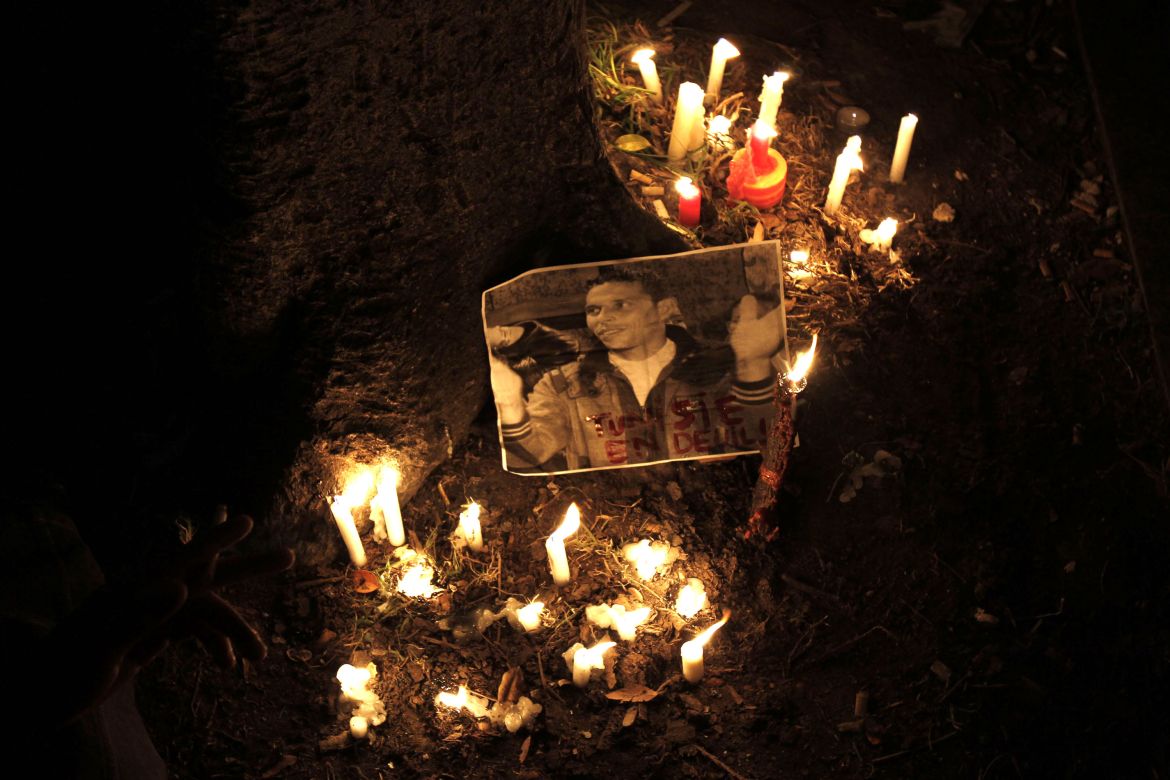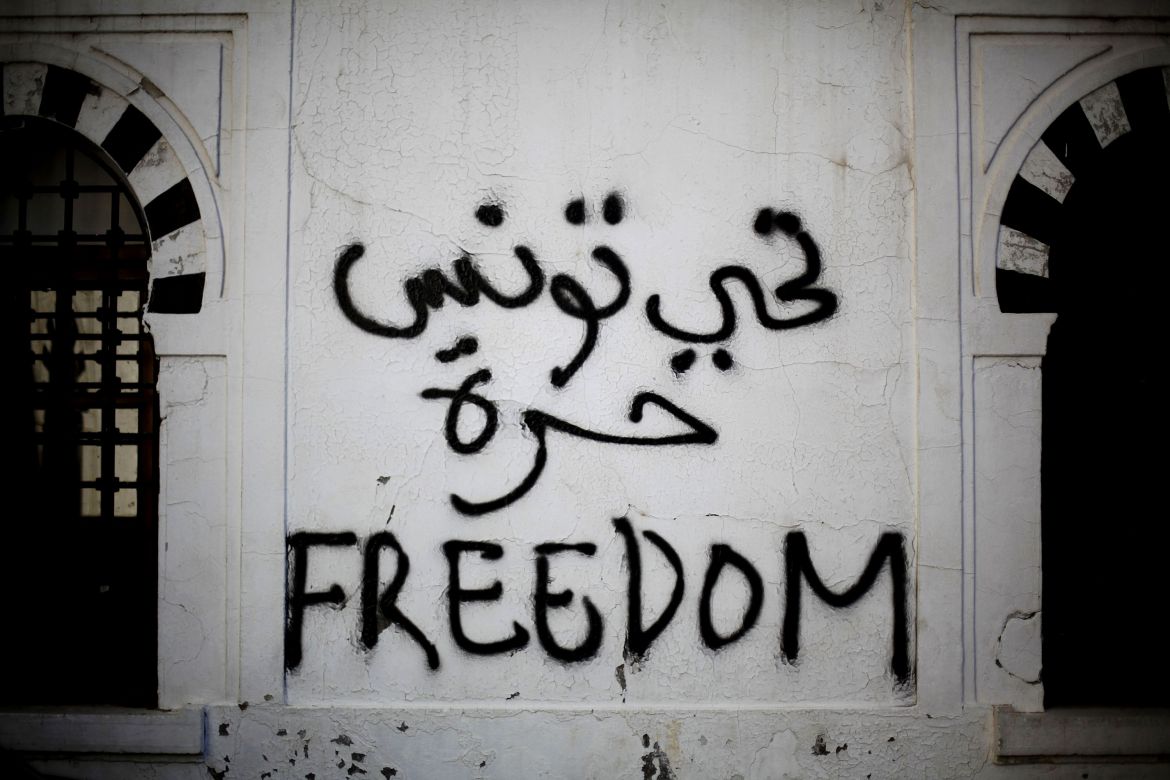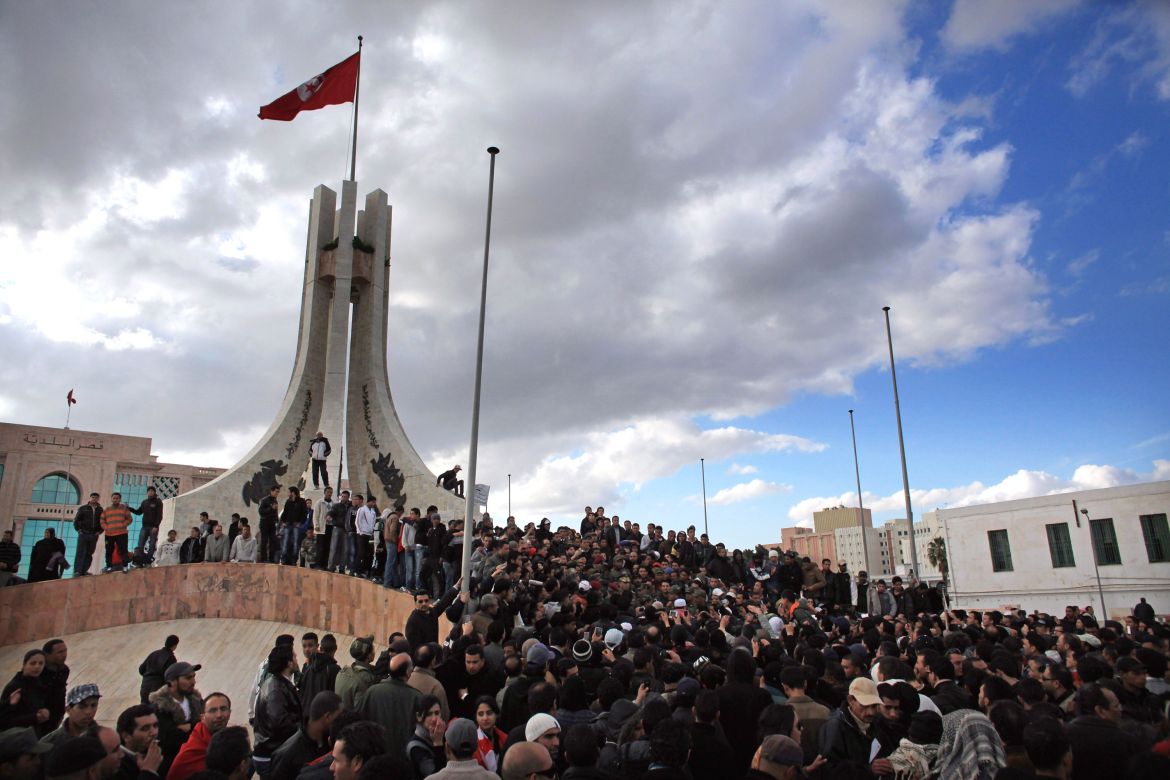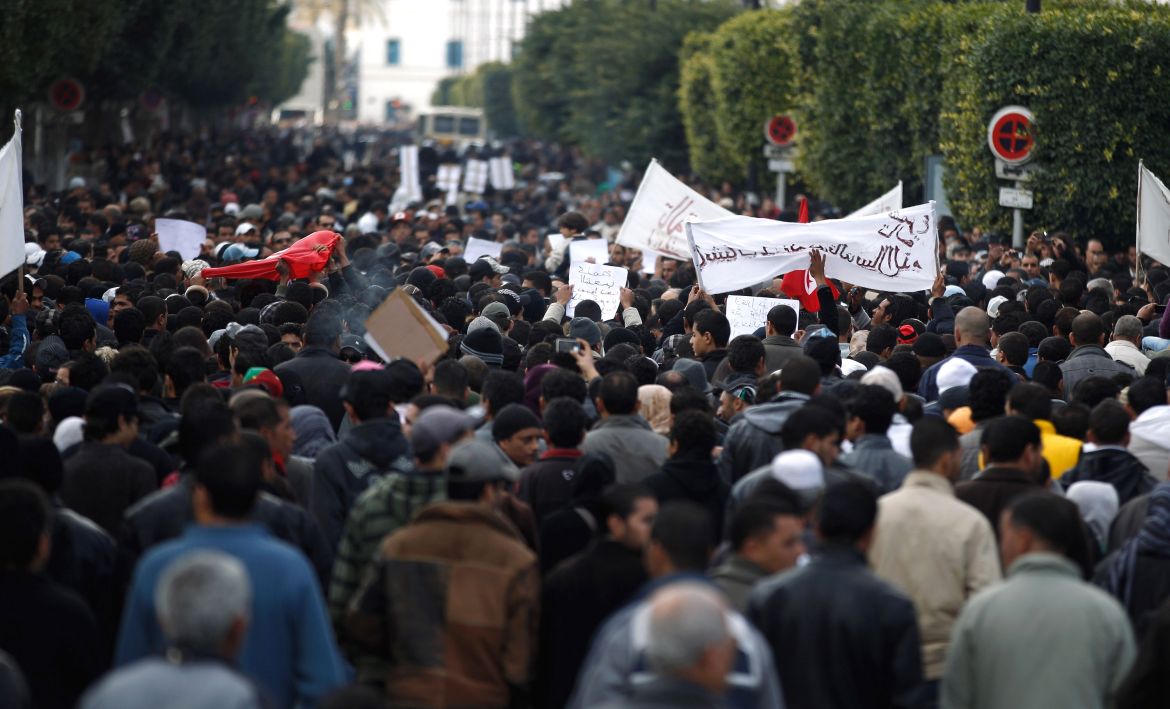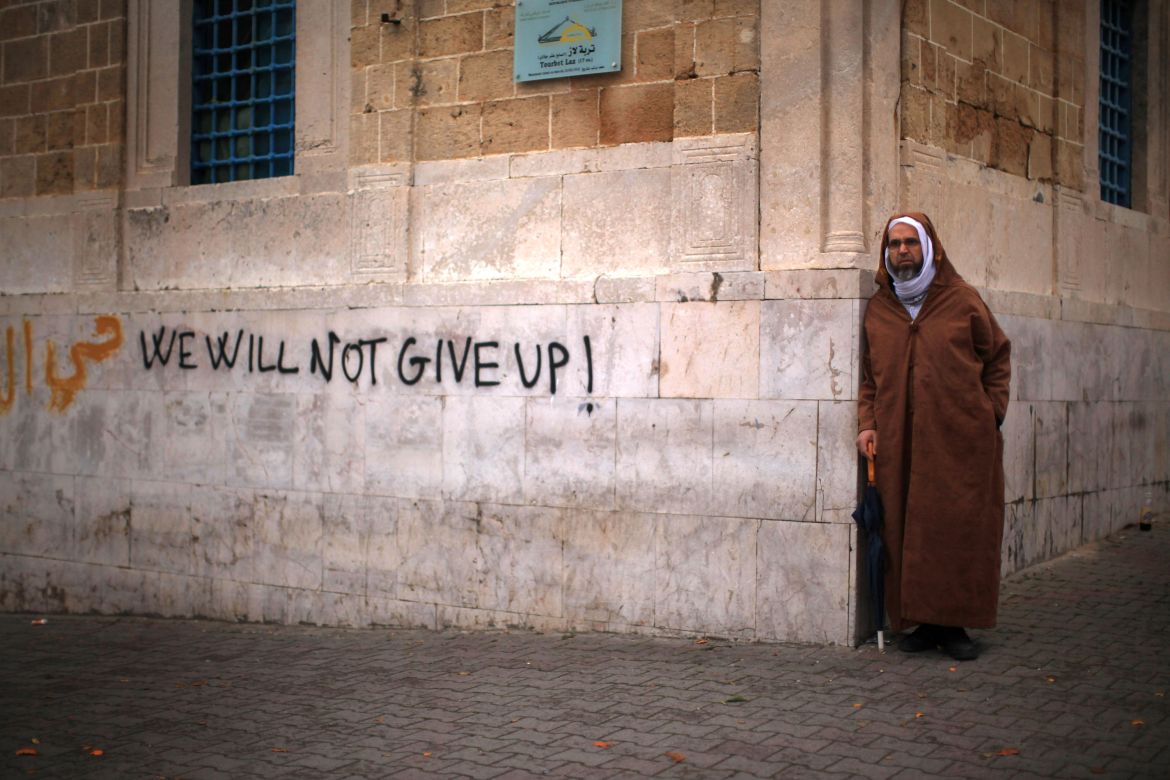In Pictures
Tunisian Revolution
The Tunisian Revolution of 2011 marked the start of the Arab Spring.
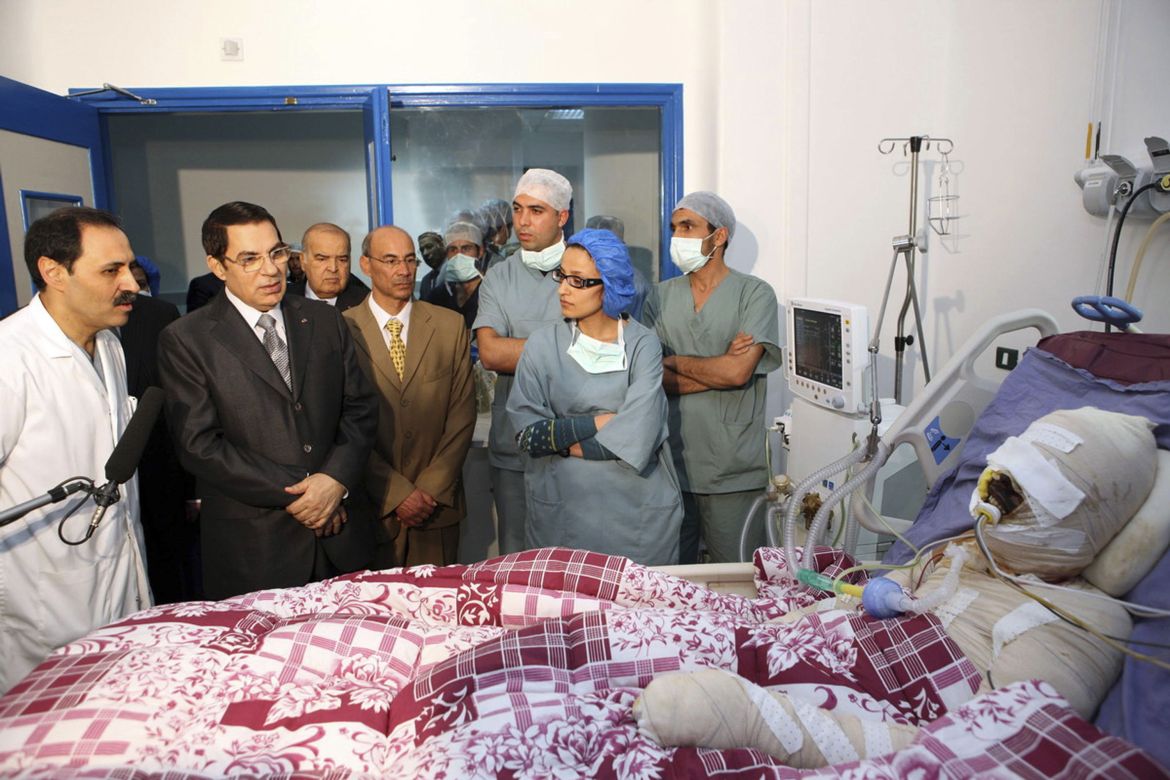
An intense campaign of civil resistance with street demonstrations made up the Tunisian Revolution, also known as the Jasmine Revolution.
The self-immolation of Mohamed Bouazizi, a vegetable vendor, the lone breadwinner of his family of seven, ignited nationwide protests and led to the ousting of Tunisian President Zine El Abidine Ben Ali and his regime.
Twenty-six-year-old Bouazizi was getting ready to sell fruits and vegetables in the rural town of Sidi Bouzid in Tunisia when he was allegedly slapped by police because of his refusal to hand over his unauthorised cart to the authorities. The humiliated vendor marched to the front of a government building and set himself on fire.
News of this act of desperation spread across Sidi Bouzid, leading to anger and protest. Within days, uprisings mushroomed across the whole country with protesters chanting slogans and demanding a solution to the vast unemployment and the dire economic state of the country. Ben Ali officially resigned after 28 days on January 14, 2011, putting an end to his 23-year-long rule.
Unemployment, food inflation, corruption, lack of political freedom and poor living conditions were the underlying reasons for the demonstrations.
